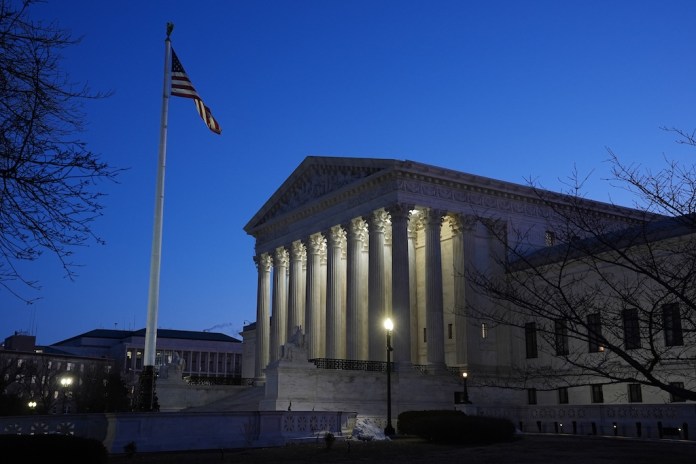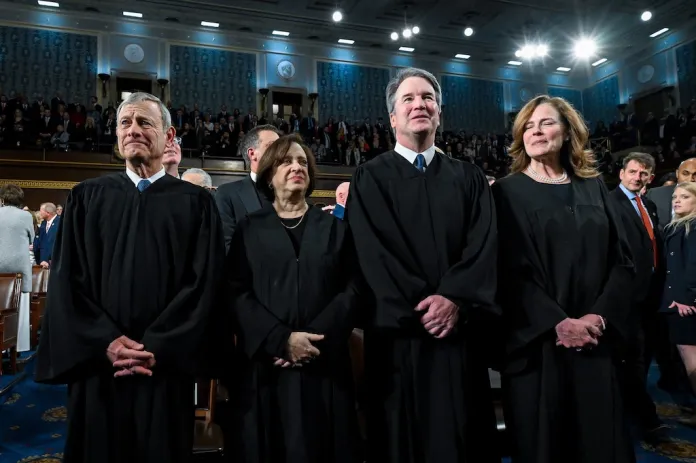SCOTUS Greenlights Mississippi’s Age-Verification Law (For Now)
The U.S. Supreme Court has declined to block Mississippi’s social media age-verification law, allowing it to go into effect for now. The law requires social media platforms to verify the ages of users, obtain parental consent for minors, and implement measures to protect young people from harmful content such as bullying, self-harm promotion, and substance abuse. Violations may result in fines up to $10,000 per offense and possible criminal penalties.
The decision came after NetChoice, an internet trade association representing major social media companies like Meta, X, and YouTube, sought to reinstate a lower court’s injunction against the law. The Supreme Court rejected NetChoice’s motion without dissent.Associate Justice Brett Kavanaugh concurred but noted that while he agreed wiht the court’s decision due to insufficient exhibition of harm, he believed the law is likely unconstitutional based on existing First Amendment precedent.
This case adds to ongoing legal battles over state regulation of social media platforms. Previously, the Supreme Court took no final stance on similar laws in florida and Texas, leaving those issues to lower courts for further review. Mississippi attorney general Lynn Fitch defended the law, emphasizing child protection on social media. The ruling signals a tentative approval for state enforcement of social media age-verification requirements while leaving broader constitutional questions unresolved.
On Thursday, the U.S. Supreme Court declined a request to block Mississippi’s social media age-verification law from going into effect (for now).
In a two-page order, the high court rejected a motion from NetChoice — an internet trade association — to “reinstate a lower court’s order protecting social media giants like Meta, X and YouTube from the new requirements,” according to a local Fox affiliate. The order did not list any dissents among the justices.
According to the left-wing SCOTUSblog, the law in question “imposes a variety of requirements on both young people and social media sites,” including parental consent for minors to create an account on the intended social media site. Under the statute, social media companies must further verify the ages of those creating accounts and “create a strategy to protect young people from being exposed to harmful material and content that promotes self-harm, bullying, and substance abuse, among other behaviors.”
Violators of the law could face “up to $10,000 per violation, and criminal penalties may also be imposed,” according to the outlet.
NetChoice reportedly filed its application with the Supreme Court after the 5th Circuit Court of Appeals lifted a district judge’s blockade on the Mississippi statute. The group argued that it would suffer “immediate, irreparable” harm should the law be permitted to take effect.
Mississippi Attorney General Lynn Fitch subsequently filed a separate motion asking the justices to reject the group’s request.
While the Supreme Court did not offer an explanation for denying NetChoice’s application, Associate Justice Brett Kavanaugh authored a concurring opinion on the matter.
The Trump appointee said that he agreed with the high court’s Thursday decision “because NetChoice has not sufficiently demonstrated that the balance of harms and equities favors it at this time.” He went on to note, however, his belief that the group “demonstrated that it is likely to succeed on the merits—namely, that enforcement of the Mississippi law would likely violate its members’ First Amendment rights under this Court’s precedents.”
“Given [the Supreme Court’s] precedents, it is no surprise that the District Court in this case enjoined enforcement of the Mississippi law and that seven other Federal District Courts have likewise enjoined enforcement of similar state laws,” Kavanaugh wrote. “In short, under this Court’s case law as it currently stands, the Mississippi law is likely unconstitutional. Nonetheless, because NetChoice has not sufficiently demonstrated that the balance of harms and equities favors it at this time, I concur in the Court’s denial of the application for interim relief.”
Cases involving state-enforced regulation of social media platforms have notably been making their way to the Supreme Court in recent years.
Last year, for example, the high court issued a unanimous decision in a case involving Florida and Texas’ laws restraining Big Tech companies’ ability to censor content it deemed unfavorable. As The Federalist reported at the time, the justices declined to rule on the merits of the laws, and instead punted the issue back to the lower courts for further review.
Much like with the Mississippi case, NetChoice was a main plaintiff challenging the laws’ legality.
" Conservative News Daily does not always share or support the views and opinions expressed here; they are just those of the writer."




